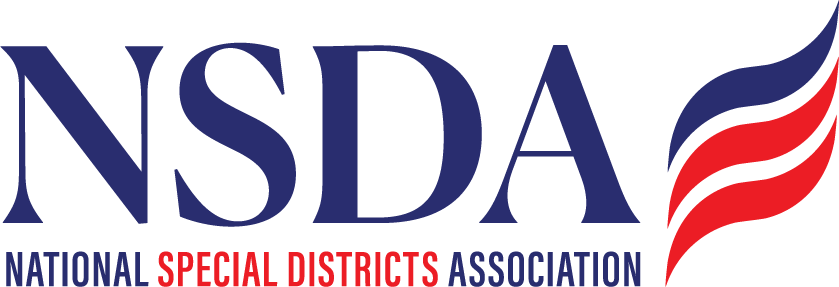Federal Advocacy Update , Week of October 13, 2025
House and Senate Action
House
The House is not in session this week.
Senate
The Senate returns this afternoon for yet another vote on the House-passed stopgap spending bill, which would fund the government through November 21. This marks the eighth attempt to advance the measure. So far, only three Senate Democrats have backed the GOP proposal, and there’s little sign that additional support is emerging.
Shutdown Update: Still No Resolution in Sight
Pressure on lawmakers to end the federal government shutdown has eased somewhat in recent days, even as the broader impacts of the lapse in funding continue to build. In past shutdowns, missed paychecks and service disruptions have often served as major political flashpoints that drive negotiations forward. However, the White House has taken a series of steps in recent days to blunt those effects and buy additional time.
Federal Employees
Federal employees received only partial paychecks last Friday, covering the period through September 30. Many civilian employees across federal agencies will begin missing full paychecks this week, raising concerns about staffing and operational disruptions in critical areas such as public safety, border security, and air travel.
At the same time, the administration has begun implementing workforce reductions across multiple departments and agencies. Office of Management and Budget Director Russell Vought announced Friday that “reductions in force” were underway after a temporary delay at the request of congressional leaders. According to a recent court filing, agencies have issued RIF notices affecting roughly 4,200 federal employees, including:
- Commerce Department: 315 employees
- Education Department: 466 employees
- Energy Department: 187 employees
- Department of Health and Human Services: 1,100–1,200 employees
- Department of Housing and Urban Development: 442 employees
- Department of Homeland Security: 176 employees
- Treasury Department: 1,446 employees
In addition, the Environmental Protection Agency has issued “intent to RIF” notices to approximately 20–30 employees, notifying them that they may be affected by a future reduction in force.
Military Pay
President Trump has directed Defense Secretary Pete Hegseth to use previously appropriated funds to pay active-duty military personnel on October 15, a move that will temporarily remove one of the most significant pressure points in the negotiations. Despite questions about the legality of the move, leaders in both parties have privately welcomed the decision.
Federal Law Enforcement Officers
OMB is reportedly working on ways to ensure that federal law-enforcement officers receive their paychecks.
WIC Program
The Trump administration has also announced that it will draw on unspent tariff revenue to sustain the Special Supplemental Nutrition Program for Women, Infants, and Children (WIC) during the shutdown. WIC provides nutrition assistance to low-income pregnant and postpartum women, infants, and young children.
These actions – along with the House being kept in extended recess during the shutdown – have left lawmakers with fewer immediate pressure points that typically drive negotiations toward a deal.
Other potential catalysts remain on the horizon. For example, federal courts will soon begin scaling back operations, and impacts on air travel are being closely monitored. Democrats continue to eye November 1 – the start of open enrollment for the Affordable Care Act (ACA) – as a key inflection point. The pending expiration of premium tax credits has become a central issue in the negotiations, with Democrats seeking an extension as part of any potential funding package.
Behind the scenes, there are early indications that discussions over the ACA tax credits may become a focal point for eventual negotiations. Some members of House Republican leadership have reportedly begun informal conversations with White House officials to explore potential compromises. Options under discussion include new income limits, higher minimum out-of-pocket premiums, restrictions on new enrollees, and additional policy changes.
FEMA Delays Major Disaster Reimbursements and Preparedness Grants to States
A recent federal report revealed that FEMA has postponed $10.9 billion in reimbursements that were slated to be distributed to 45 states during the final months of Fiscal Year (FY) 2025. The payments, which were intended to cover pandemic-related emergency costs, have been shifted to FY 2026. While the administration has not indicated that the funding will be permanently withheld, no clear timeline has been provided for when the reimbursements will be made.
FEMA is also withholding more than $300 million in Emergency Management Performance Grants until states verify that their population estimates – which are used to calculate award amounts – exclude individuals who have been deported. These grants play a critical role in helping local communities prepare for disasters by funding emergency management staff, training, equipment, and public education. The funding flows first to the states, which then distribute it to counties and other local jurisdictions to support preparedness activities.
States have begun receiving notices directing them to submit a population certification detailing their methodology and verifying that individuals who have been deported are not included in their population counts. Although federal law designates U.S. Census Bureau data as the official basis for calculating these grants, FEMA is now requiring states to provide additional verification before releasing funds. According to the notice, FEMA will lift the current funding hold once it has reviewed and approved each state’s certification and methodology.
Relevant Hearings and Markups
Senate Special Committee on Aging
Thursday, October 16 |9 a.m. PT | The panel will hold a field hearing in Pacific Palisades, California, entitled "Forgotten After the Flames: Stories from the Palisades Fire."
